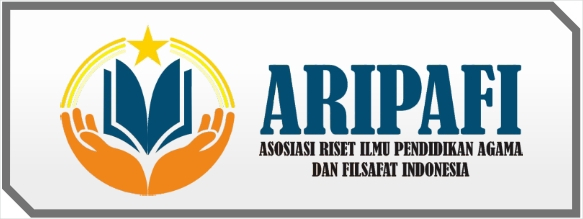Tinjauan Profunditas Tentang Logika Penalaran Dan Kebenaran Dalam Filosofi
DOI:
https://doi.org/10.55606/sinarkasih.v2i2.317Keywords:
Logical reasoning, truth, philosophy, analysis, implicationAbstract
When entering the realm of philosophy, logical reasoning and truth become the main foundation for critical and deep thinking. This article offers a comprehensive overview of the role and implications of both concepts in the context of philosophy. The purpose of this study is to explore the depth of the concepts of logical reasoning and truth, and identify their impact on human thought. The method applied in this study is a qualitative approach; this approach involves the systematic analysis of a wide range of literature; including the Bible, articles, books, and other sources relevant to the topic under investigation. According to Wiley, qualitative research involves the collection of actual data from a wide range of scholarly literature; which includes facts from the past and present. The scope of the study includes an exploration of different types of logical argumentation, such as deduction and induction, as well as a discussion of the nature of truth, both in absolute and relative contexts. The results highlight the importance of a deep understanding of logical reasoning in constructing strong arguments, while also illustrating the philosophical implications of the concept of truth for human views of reality. By delving deeper into these two concepts, this research provides a valuable contribution to the development of philosophical discourse and guides us towards more critical, systematic, and fact-based thinking in facing the challenges of contemporary and future thinking.
References
Atabik, Ahmad. “Teori Kebenaran Prespektif Filsafat Ilmu.” Jurnal Akuntansi Multiparadigma 7, no. 1 (2016): 253–271.
Dachlan 2014:1. “KEMAMPUAN LOGIKA ABSTRAK, PRESTASI BELAJAR MATEMATIKA DAN PENGAJUAN HIPOTESIS.” Angewandte Chemie International Edition, 6(11), 951–952. (2014): 22–31.
Dervin, Fred, dan Caroline Dyer. Constructing Methodology for Qualitative Research. Constructing Methodology for Qualitative Research. London, 2016.
Habibah, Sulhatul. “Dosen Filsafat pada Fakultas Agama Islam Universitas Islam Darul Ulum Lamongan 166.” DAR EL-ILMI : Jurnal Studi Keagamaan, Pendidikan dan Humaniora 4, no. 1 (2017): 166–180.
Introduction, I. “CHAPTER FIVE WILLIAM ALSTON ON JUSTIFICATION AND EPISTEMIC CIRCULARITY II . Alston ’ s Rejection of " Perspectival Intemalism "” (1989): 68–69.
Jhon Wiley and Sons. Introduction to Qualitative Research Methods; A Guidebook and Resource. Kanada: New Jersey, 2016.
Lubis, Nada Shofa, Fenti Farleni, Dase Erwin Juansah, dan Lukman Nulhakim. “Proposisi, Logika dalam Berpikir Sebagai Dasar Penalaran Ilmiah dalam Menghasilkan Pengetahuan Baru.” Jurnal Filsafat Indonesia 6, no. 2 (2023): 276–283.
Rohmadi, Yusup, dan Waryunah Irmawati. “DASAR-DASAR LOGIKA EFUDEPRESS Fakultas Ushuluddin dan Dakwah IAIN Surakarta.” Efudepress (2020).
Sobur, Kadir. “Logika Dan Penalaran Dalam Perspektif Ilmu Pengetahuan.” TAJDID: Jurnal Ilmu Ushuluddin 14, no. 2 (2015): 387–414.
Suhartono, Suparlan. Sejarah Pemikiran Filsafat Modern. Yogyakarta: Ar Ruzz Media, 2005.
Weruin, Urbanus Ura. “Logika, Penalaran, dan Argumentasi Hukum.” Jurnal Konstitusi 14, no. 2 (2017): 374.
Downloads
Published
How to Cite
Issue
Section
License
Copyright (c) 2024 Sinar Kasih: Jurnal Pendidikan Agama dan Filsafat

This work is licensed under a Creative Commons Attribution-ShareAlike 4.0 International License.


















